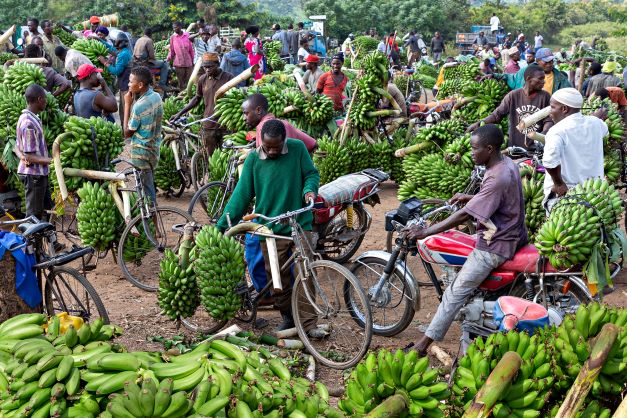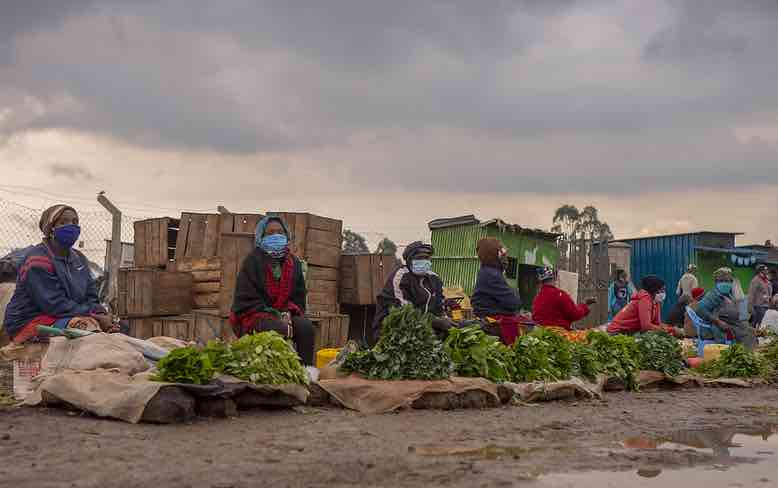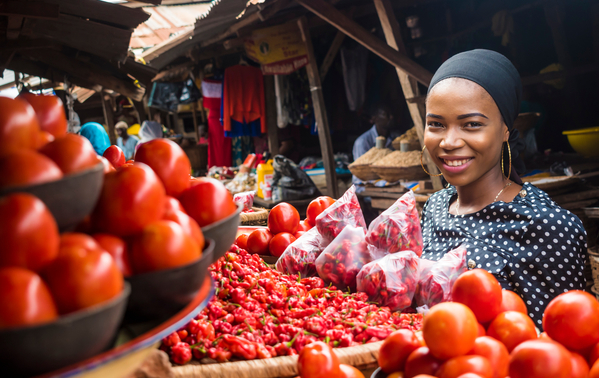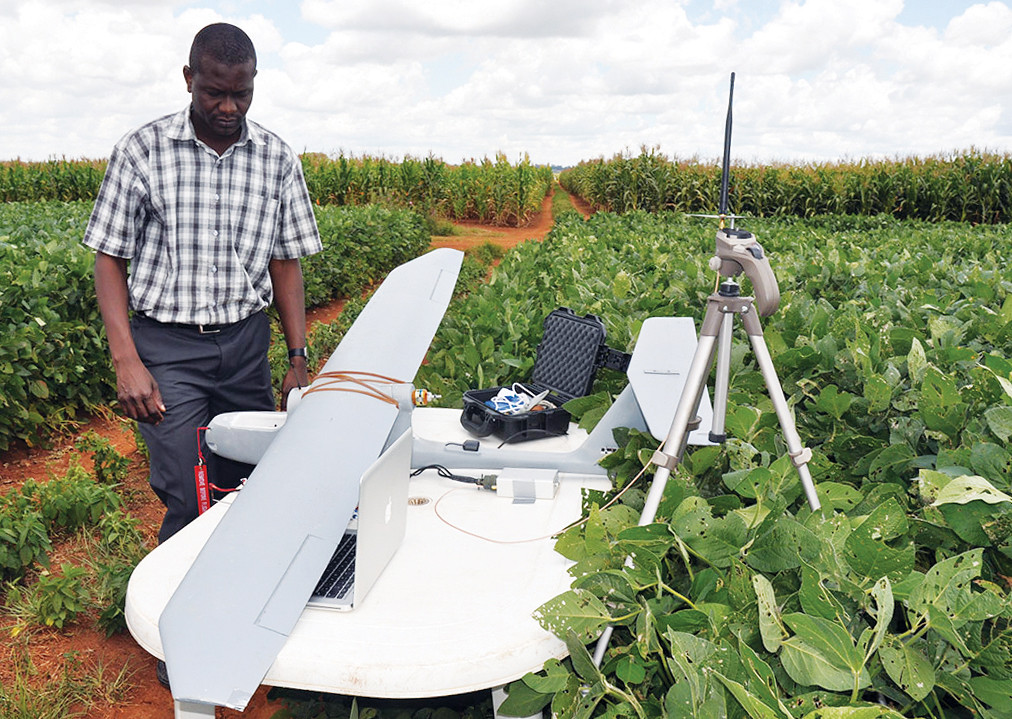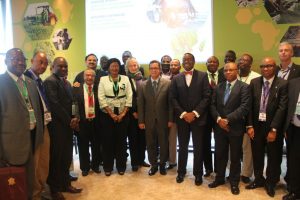From October 21 to 23, 2015, at the Adbou Diouf International Conference Center (CICAD) in Dakar, Republic of Senegal, the African Development Bank (AfDB) organized a High-level Conference on “transforming Africa’s agriculture.” This event was the first of its kind to gather researchers, Prime Ministers, Ministers of Agriculture, as well as Ministers of Economy, young entrepreneurs, Governors of the Central Bank, and professionals from the financial world.
The stated objective of the meeting was to define and develop a “transformation program” for Africa’s agricultural sector. Dr. Akinwumi Adesina, president of the AfDB Group urged his peers to demonstrate pragmatism and take concrete actions so as to change the “face” of African agriculture by 2025. His words were echoed by Augustin Matata Ponyo, DRC’s Prime Minister, who compared African agriculture to a sick person who needs to be moved to the “emergency room”.
The International Food Policy Research Institute attended this great event and participated in two major sessions:
I/Policies and Regulations to Support Growth and Transformation of Agriculture in Africa
This session was introduced and presented by Dr. Ousmane Badiane, IFPRI Director for Africa. During this
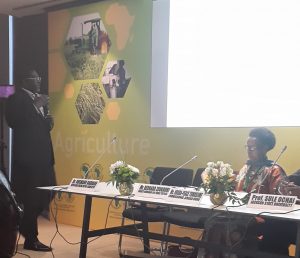
discussion, the intention was to analyze the challenges and opportunities and suggest ways to improve the key areas in which political and regulatory actions are necessary to accelerate growth of the agricultural sector and improve informational results. These key areas are, among others: general macro-economic and sectoral governance; policies and specific regulations related to trade, to agriculture industry and to development of the value chain, to sustainable management of lands and water resources, to technological innovation, to nutrition, to inclusion of women and to social services. During the presentation, he spent much time insisting that the revolution is already going on regarding agricultural policies. In his opinion, the Comprehensive Africa Agriculture Development Program (CAADP) adopted in 2003 in Maputo-Mozambique is a remarkable transformation. Indeed, with the advent of the CAADP, for the first time, African States have taken control of their leadership on agricultural issues. For further information click here.
II/ CGIAR meeting with Dr. Akinwumi Adesina
At the start of his speech, the AfDB Group President recalled the importance of the research centers of the CGIAR (Consultative Group on International Agricultural Research). He highlighted the important and decisive role of the Consortium centers in the major project of transforming Africa’s agriculture. He explicitly asked the CGIAR how they would contribute and he urged all the actors to formulate concrete questions so that in no more than 10 years African agriculture can be improved. Responding to this appeal, Dr. Badiane proposed to adopt a sub-regional/local approach instead of applying modes of action based on “international standards” which, in most of the cases, do not correspond to the priorities and needs in the field.
The many sessions were led with this determination to make progress. And, after 3 days of advocacy, work and discussions, the conference ended on a very positive note with strong action points. The AfDB also intends to triple its climate financing by 2020 to reach US$ 5 billion per year, through a close collaboration with the African Union, the African Ministerial Conference on Environment, the United Nation Program for Environment and the G7, in order to establish the Initiative for renewable energies in Africa. Moreover, the Bank will help African countries to reach a capacity for risk management at continental level in order to better manage the natural disaster risks linked to climate change. The Institution also committed to the inclusion of women and youth, who are generally left out of the agricultural sector.
Building on the enthusiasm and real desire of every participant to see the advent of a self-sufficient and strong “agricultural business”, Dr. Akinwumi Adesina declared in his closing speech that this “conference has created the necessary synergies for efficient partnerships that will allow us to reach our objective of feeding Africa”.

